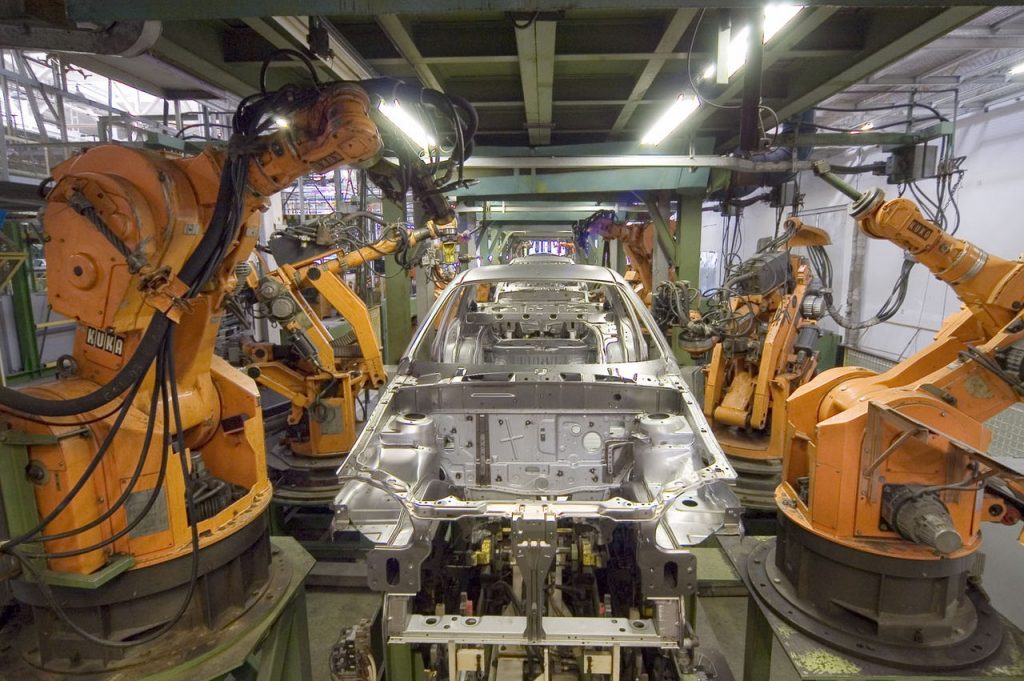
Could basic income solve the problem of robots taking our jobs?
Picking the self service checkout over a cashier may not seem like a big deal. But as technology develops, more and more tasks previously carried out by humans are being taken over by machines.
Research shows that 65% of kids born today will end up in jobs that don’t yet exist. And as many as 15 million jobs in the UK could be replaced by robots over the next few decades. In the US, the number could be as many as 80 million.
Whichever way you look at it, our lives and careers have got some big changes coming. To help with the transition, some politicians and campaigners are advocating replacing the current welfare system – which supports things like pensions and unemployment benefits – with a single payment, paid to everyone, known as a Universal Basic Income (UBI).
Wait, what was that about jobs being taken by robots?

The situation isn’t as hopeless as it might seem at first glance. According to research, "created far more jobs since 2001 than it has destroyed”. And, they say, the new roles tend to be better paid than the ones they are replacing.
But even if we’ll be alright in the long haul, we’ve still got the immediate problem of how to make sure people are taken care of during the transition from the jobs of yesterday to the jobs of tomorrow. As people develop different skills to adjust to new types of work emerging, they’ll still need to pay the bills and put food on the table.
And a 'universal basic income' could help?

Introducing a UBI is just one idea for how to keep things going in this adjustment period. It would replace the current welfare systems with a simpler and more efficient process for making sure people are looked after – and more and more politicians are beginning to take it seriously.
The idea of a UBI is that the government pays every citizen a fixed monthly fee no matter what their circumstances may be. Some countries are already testing out the idea through experiments and pilot schemes.
In the Dutch city of Utrecht, for example, starting this year, 250 citizens who currently receive government benefits will instead receive a guaranteed income of €960 per month for the next two years, with no obligation to find work. Finland has also committed to a two-year trial across the whole country, and proposals are being discussed in Scotland too.
So why isn't everyone doing this already?
But not everyone’s a fan. A few arguments have been made to counter the idea that UBI is the solution to the problems of the welfare system: the cost, the danger of how it could mess with incentive systems, and the way it would change the relationship between individuals and their governments.
The cost of UBI would obviously vary from country to country, but to take the US as an example, “a check of $10,000 to each of the 300 million Americans would cost more than $3 trillion a year...which amounts to nearly all the tax revenue collected by the federal government.” To get public support for an idea this radical would take a serious cultural shift.
Secondly, some argue that welfare systems should exist to keep people in work, not give them a reason to stay out of it. It comes down to an opinion on human psychology and motivation – in other words, different ideas on what makes us want to go to work every day – but the worry is that guaranteed money will encourage people to just stay at home and let the robots do the work.

Politicians might be flirting with the idea, but there have been relatively few proper trials, so it's hard to say for sure how big its impact will be. All eyes are on the places giving it a go. But, if it is a success, it could change the way we think about work forever.



